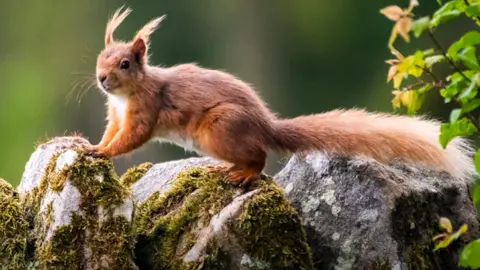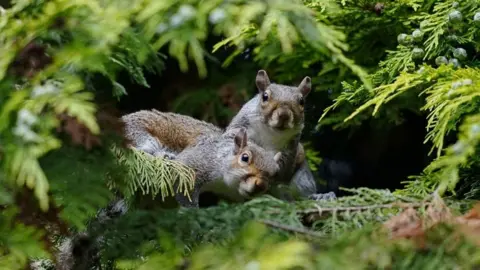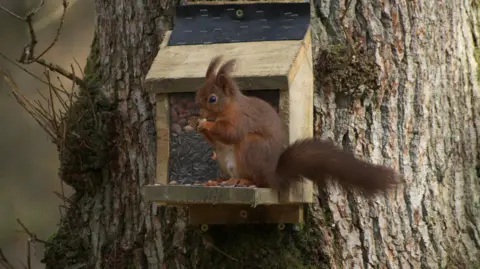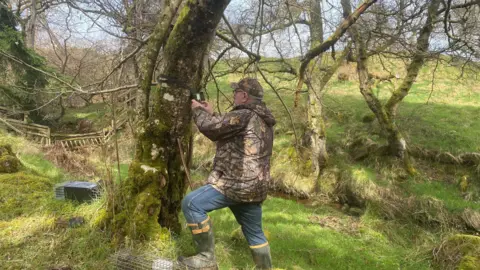Greys invade England's red squirrel strongholds
 Ian Glendinning
Ian GlendinningEngland's last remaining strongholds for red squirrels are being invaded by greys, a new survey suggests.
Volunteers for the conservation organisation Red Squirrels Northern England (RSNE) visited 246 sites for its annual squirrel check.
They found while red squirrel numbers were holding up, greys now outnumbered them in both Cumbria and Northumberland.
Red Squirrels Northern England project officer Abbie McQueen called the substantial increase of grey squirrels "concerning", but said "we hope it can help build a case for further funding in areas that need it".
Originally from North America, the larger and more aggressive grey squirrel is classified as an invasive non-native species.
It carries - but is not affected by - a pox which causes red squirrels to die slowly and painfully.
 PA Media
PA MediaA total of 246 sites were surveyed and red squirrels were found in 52% of them, up from 50% in 2023.
But grey squirrels were also found in 69% of sites, an increase of 6.8% on the previous year.
In Northumberland, grey detection is about 25% higher than red detection, and 17.3% higher in Cumbria.
 Barry Bickerton
Barry BickertonIan Glendinning, chair of Northern Red Squirrels, which represents volunteer conservation groups, said: "There is hope for reds with things like gene editing, contraception, but they are years away.
"By the time we come to that stage, I think it's highly unlikely we'll have any red squirrels left in England."
There was some good news in the survey.
In Northumberland's Kielder Forest, more sites than ever before saw evidence of reds, despite an increase in greys, and no greys at all were found at Kyloe Red Squirrel Reserve near Berwick.

RSNE said the survey showed "conservation intervention is paying off" but would welcome "more funding".
Ms McQueen added: "We are not disheartened and we are so grateful to all those who work tirelessly to protect our red squirrels."
But Mr Glendinning said: "The reality is all we're doing is slowing down the inevitable.
"But I'll keep going because I don't want the last red squirrel where I live to die on my watch."
Follow BBC North East and BBC Cumbria on X, Facebook, Nextdoor and Instagram. Send your story ideas to [email protected]
